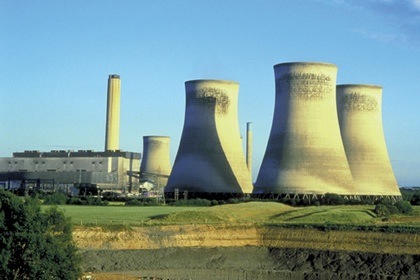
Around the world, as countries seek to lessen their dependence on coal, oil and gas and China, India and other emerging economic powerhouses seek to meet their ravenous energy demands, nuclear energy could experience a renaissance in the coming decades.
A global nuclear revival—with an increase in uranium exports, nuclear facilities, amounts and movement of fissionable nuclear materials, and the number of states and stakeholders involved in the industry—will necessitate a significant response in terms of national obligations and enhanced global governance.
To investigate the implications of such a revival on nuclear safety, security and potential nuclear weapons proliferation, the Nuclear Energy Futures Project was launched by the Centre for International Governance Innovation (CIGI) and the Canadian Centre for Treaty Compliance (CCTC) in 2006.
A research unit in the Norman Paterson School of International Affairs (NPSIA), the CCTC was established in 2005 to focus on treaty compliance. It conducts policy-oriented research into the theory and practice of compliance in respect of international treaties, resolutions, agreements and arrangements. Its reputation in the field of disarmament, arms control and nonproliferation earned it the invitation to run the Nuclear Energy Futures Project.
“The CCTC brings to the project a familiarity with nuclear weapons issues and nuclear governance elements such as treaties and agreements, as well as longstanding relationships with key international organizations like the International Atomic Energy Agency and the Comprehensive Nuclear Test Ban Treaty Organization,” says Trevor Findlay, director of the CCTC and professor at NPSIA.
Chaired by Louise Fréchette, former under secretary-general of the United Nations, the project is assessing the likelihood of a major surge in the use of nuclear energy, what forms it may take, and the implications of the various scenarios for nuclear safety, security and nonproliferation and the global governance arrangements that currently exist. Numerous studies have been commissioned or produced by the CCTC, and international conferences, seminars and consultations involving nuclear stakeholders, including the nuclear industry and technical experts, have been held in Ottawa and Waterloo, Ont.; Sydney, Australia; and Vienna, Austria. Additional events will take place in 2009.
In September 2009, the project team will make recommendations to Canada and the international community broadly as to how global governance should be shaped to cope with the likely nuclear future.
Fast Fact…
The Nuclear Energy Futures Project has published A Guide to Global Nuclear Governance, a comprehensive guide to the international treaties, organizations, initiatives and networks that form the global regime dealing with nuclear nonproliferation, safety and security. Visit http://carleton.ca/cctc/nuclear_futures.html and http://www.cigionline.org for more information.